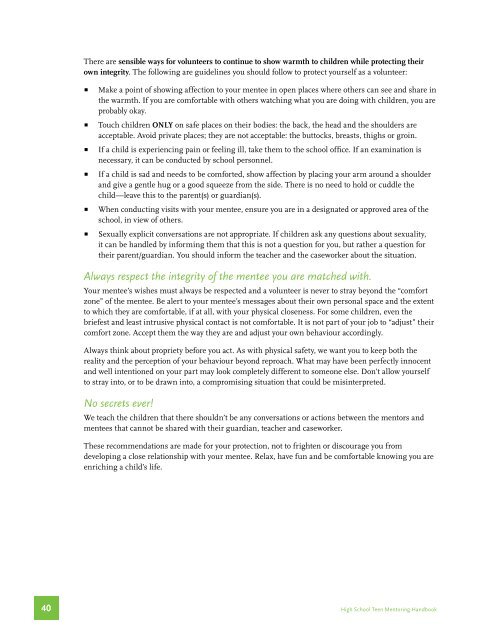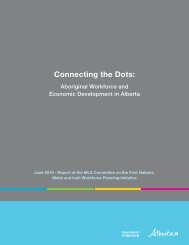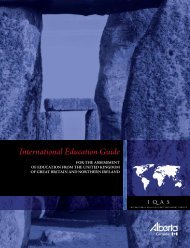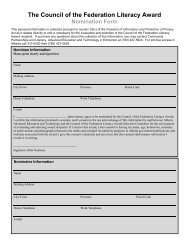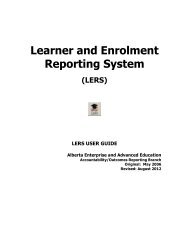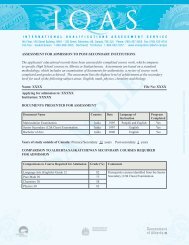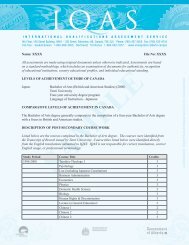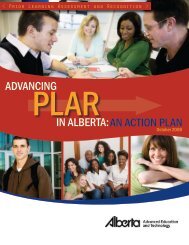High School Teen Mentoring Handbook - Enterprise and Advanced ...
High School Teen Mentoring Handbook - Enterprise and Advanced ...
High School Teen Mentoring Handbook - Enterprise and Advanced ...
- No tags were found...
You also want an ePaper? Increase the reach of your titles
YUMPU automatically turns print PDFs into web optimized ePapers that Google loves.
There are sensible ways for volunteers to continue to show warmth to children while protecting theirown integrity. The following are guidelines you should follow to protect yourself as a volunteer:•Make a point of showing affection to your mentee in open places where others can see <strong>and</strong> share inthe warmth. If you are comfortable with others watching what you are doing with children, you areprobably okay.• Touch children ONLY on safe places on their bodies: the back, the head <strong>and</strong> the shoulders areacceptable. Avoid private places; they are not acceptable: the buttocks, breasts, thighs or groin.•If a child is experiencing pain or feeling ill, take them to the school office. If an examination isnecessary, it can be conducted by school personnel.•If a child is sad <strong>and</strong> needs to be comforted, show affection by placing your arm around a shoulder<strong>and</strong> give a gentle hug or a good squeeze from the side. There is no need to hold or cuddle thechild—leave this to the parent(s) or guardian(s).•When conducting visits with your mentee, ensure you are in a designated or approved area of theschool, in view of others.•Sexually explicit conversations are not appropriate. If children ask any questions about sexuality,it can be h<strong>and</strong>led by informing them that this is not a question for you, but rather a question fortheir parent/guardian. You should inform the teacher <strong>and</strong> the caseworker about the situation.Always respect the integrity of the mentee you are matched with.Your mentee’s wishes must always be respected <strong>and</strong> a volunteer is never to stray beyond the “comfortzone” of the mentee. Be alert to your mentee’s messages about their own personal space <strong>and</strong> the extentto which they are comfortable, if at all, with your physical closeness. For some children, even thebriefest <strong>and</strong> least intrusive physical contact is not comfortable. It is not part of your job to “adjust” theircomfort zone. Accept them the way they are <strong>and</strong> adjust your own behaviour accordingly.Always think about propriety before you act. As with physical safety, we want you to keep both thereality <strong>and</strong> the perception of your behaviour beyond reproach. What may have been perfectly innocent<strong>and</strong> well intentioned on your part may look completely different to someone else. Don’t allow yourselfto stray into, or to be drawn into, a compromising situation that could be misinterpreted.No secrets ever!We teach the children that there shouldn’t be any conversations or actions between the mentors <strong>and</strong>mentees that cannot be shared with their guardian, teacher <strong>and</strong> caseworker.These recommendations are made for your protection, not to frighten or discourage you fromdeveloping a close relationship with your mentee. Relax, have fun <strong>and</strong> be comfortable knowing you areenriching a child’s life.40 <strong>High</strong> <strong>School</strong> <strong>Teen</strong> <strong>Mentoring</strong> <strong>H<strong>and</strong>book</strong>


